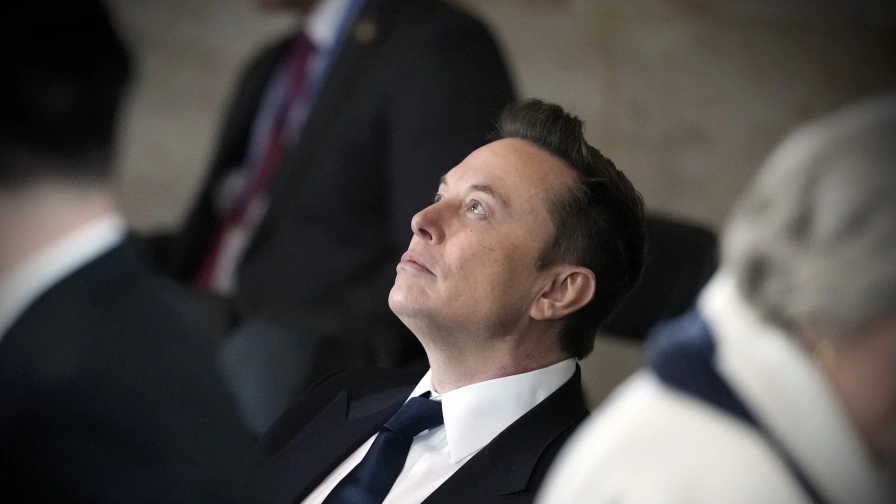World News
Elon Musk’s DOGE Eliminates $8 Million Politico Funding in Major Government Efficiency Move
In a decisive move to enhance government efficiency, the Department of Government Efficiency (DOGE), spearheaded by Elon Musk, has terminated federal funding allocated to Politico. This action comes after revelations that federal agencies had committed approximately $8 million to Politico subscriptions, expenditures Musk criticized as wasteful.
The Department of Government Efficiency’s Mandate
Established under the Trump administration, DOGE aims to streamline federal operations by identifying and eliminating unnecessary expenditures. Elon Musk, appointed to lead this initiative, has been vocal about reducing what he perceives as government waste, emphasizing the need for fiscal responsibility.
Scrutiny of Politico’s Government Contracts
An internal review by DOGE uncovered that various federal agencies had entered into subscription contracts with Politico totaling $8.4 million. Musk publicly denounced these expenses on his social media platform, X, labeling them as an imprudent use of taxpayer funds. He questioned the necessity of such expenditures, especially given the availability of alternative news sources.

Official Announcement from the White House
Following Musk’s critique, White House Press Secretary Karoline Leavitt confirmed the administration’s decision to terminate these contracts. She stated, “The political outlet’s funding will no longer be happening,” underscoring the administration’s commitment to fiscal prudence.
Implications for Politico and Federal Agencies
Politico, a prominent political journalism organization, has long been a staple source of information for policymakers and government officials. The cancellation of these contracts may impact the outlet’s revenue and its relationship with federal entities. For federal agencies, this move signals a shift towards more stringent evaluations of expenditures, particularly concerning external subscriptions and services.
Broader Context of Government Efficiency Efforts
The action against Politico’s funding is part of a larger initiative by DOGE to reassess federal spending. Musk and his team have been reviewing various programs and contracts, aiming to eliminate what they consider redundant or non-essential expenditures. This includes scrutinizing funding for media subscriptions, grants, and other financial commitments deemed superfluous.

Public and Political Reactions
The decision has elicited mixed reactions. Supporters applaud the move as a necessary step towards reducing government waste and ensuring taxpayer money is utilized effectively. Critics, however, argue that such actions could undermine the free press and limit access to diverse information sources within the government. The balance between fiscal responsibility and maintaining a well-informed federal workforce remains a topic of debate.
Conclusion
Elon Musk’s leadership of the Department of Government Efficiency has led to significant actions aimed at curbing federal spending, with the cancellation of Politico’s funding being a notable example. As DOGE continues its mission, further evaluations of government expenditures are anticipated, reflecting the administration’s focus on efficiency and fiscal discipline.
FAQs
What is the Department of Government Efficiency (DOGE)?
DOGE is a governmental body established to identify and eliminate unnecessary federal expenditures, aiming to streamline operations and promote fiscal responsibility.
Why was Politico’s government funding canceled?
An internal review revealed that federal agencies had committed approximately $8 million to Politico subscriptions, which DOGE, under Elon Musk’s leadership, deemed wasteful.
How might this decision affect federal agencies?
Agencies may need to seek alternative information sources and re-evaluate their subscription services, aligning with DOGE’s broader initiative to reduce non-essential spending.
What are the broader implications of DOGE’s actions?
DOGE’s initiatives reflect a governmental shift towards stringent fiscal oversight, potentially leading to the reduction or elimination of various programs and contracts considered non-essential.
How has the public responded to these efficiency measures?
Public opinion is divided; some praise the efforts to reduce wasteful spending, while others express concern over potential impacts on information access and the press’s role in government.
What other areas is DOGE focusing on?
Beyond media subscriptions, DOGE is reviewing various federal programs and contracts to identify and eliminate redundant or unnecessary expenditures.
From Macallcloth




